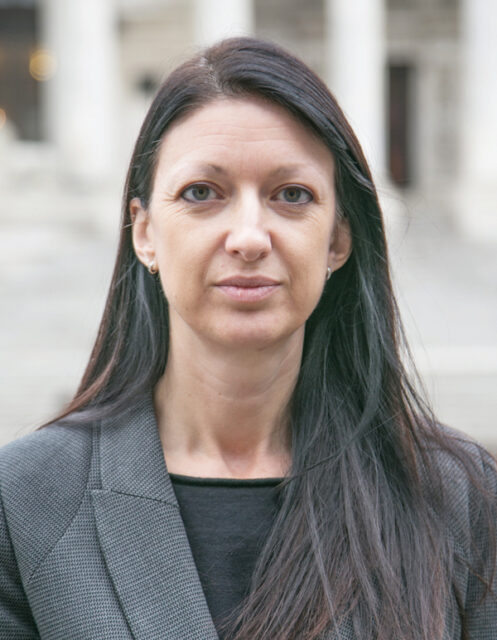Parents of children with special needs last year told a website survey that they were unhappy with September’s changes to provision. But do their concerns indicate widespread problems, or has the coalition secured genuine longer-term improvements?
The coalition says that reforms to special educational needs and disability (SEND) provision brought in last September are the biggest shake-up to provision in 30 years. So it’s normal to expect teething problems, says children’s minister Edward Timpson.
At the time, Mr Timpson was responding to concerns raised by the Special Needs Jungle website – which canvassed views from parents and carers of young people with SEND on the impact of last September’s changes. Sixty responses came in, all but one reporting negative experiences. But do these indicate widespread problems. Or do those working in the field believe the coalition has secured genuine longer-term improvements for pupils with SEND? The new code of practice, which came into force under the Children and Families Act, puts the emphasis on a “person-centered approach”, with more input from pupils and families. Statements of SEN running up to the age of 18 are now being replaced by education, health and care plans (EHCs) up to the age of 25. Those newly assessed as meeting the criteria will get EHC plans and, starting last September, there is a three-year window for transferring from statements to EHC plans.
EHC plans are for children and young people who need annual support that costs more than £10,000. There is the option of personal budgets, and local authorities are obliged to publish a “local offer”, a directory of all SEN provision for young people in the area.
Schools Week approached a number of individuals with an interest in the quality of SEND education and overall provision, and who generally welcome the principles underpinning the changes. At least one local authority (LA). Portsmouth (see box), believes they’re precisely what’s needed.
But there is also a view that it took too long for the government to get to point of launching the new code and a view that funding pressures will inevitably impact on provision. There are also fears that training of staff in schools and LAs is lagging behind, and that the new multi-agency approach – with education, health and social care working to meet a student’s needs – is not working consistently well in all areas.

Complaints to Special Needs Jungle include reports of LAs not understanding what was expected of them, some staff not receiving any training, and a feeling that most SEND practitioners are being offered training in paperwork changes rather than in the cultural change fundamental to the “person-centered approach”.
Special Needs Jungle founder Tania Tirraoro told Schools Week that while she feels the principle underlying the reforms is good, it would have been better to have delayed implementation until January this year to allow for training and new systems to be put into place.
“There is an enormous amount that isn’t right about the reforms – yet. In trying not to be prescriptive, the government has left far too much to be interpreted by LAs in the way they want.”
But her view is challenged by the experience of inclusion commissioning manager for Portsmouth City Council, Dr Julia Katherine (see box below). She strongly welcomes the changes and feels that the joining of services around the transition to adulthood has “allowed really positive things to happen”.
Previously, pupils with high needs would have a statement of SEN. Those with an identified less severe SEN need could be on a “school action” list, and if their needs were greater but not deemed high enough for statementing, they could be identified as “school action plus”.

Amy Cook is a senior researcher specialising in SEN at The Key for School Leaders, a national information service for schools. She says that under the new system there’s an emphasis on a holistic package of support. All pupils with high needs will have an EHC plan by September 2017 and, crucially, that plan will support them until they’re 25.
For children who need more support than a teacher can provide in a classroom, but don’t warrant an EHC plan, there’s a new single category called “SEN support”.
“A child-centred approach is fantastic,” Ms Cook says. “It puts the individual at the heart of the system – and the pupil’s views and concerns count.” There’s more of a focus on the outcomes for each child. “Having expectations for each and every child is fundamental and the acknowledgement that each child will be supported into adulthood is crucial.”
But she’s found special schools sometimes face particular difficulties, given that every local authority is allowed to develop its own system of transferring pupils to EHC plans.
“Often pupils come from different LAs and that means as a school you could be dealing with three systems and their different documentation and transfer plans. Mainstream schools are currently wondering which pupils should get SEN support.”

Mark Baker, president of the Association of Teachers and Lecturers, has had a 30-year career in special educational needs. While he calls the principles of the new code “laudable”, he says that “it’s almost downhill from there”.
He worries about “massive pressures on funding and on schools to achieve quite a narrow set of criteria”. This, he believes, is “tending to divert resources to those (criteria) instead of to SEND provision”.
He also believes that SEND expertise is becoming more stretched: “The abilities, skills and training of staff to identify issues has become more and more diluted in schools and particularly in LAs. Who is there in LAs to decide on what is a good and appropriate level of care?”
The onus is now on parents, he argues, to create their own case for provision – while the agencies they are relying on may not be able to offer the right help.
“Potentially here we have parents doing their own research and for some, it will disadvantage them enormously if they can’t find their way round a system.”
One special school head is highly critical of what he calls the slow implementation of the code and of EHC plans.

Jarlath O’Brien, head of Carwarden House Community School in Camberley, Surrey, says the aims of the code began life in March 2011 in the support and aspiration green paper. “But statements are only now starting to be converted to EHC plans and it took almost the life of the Parliament to become law.”
He’s also found that despite the emphasis on holistic reviews, the transition reviews from statements to EHC plans that he’s been involved with have not had input from health or social care professionals. He does not see “any pressures or incentives for those organisations to become any more involved than they were before”.
Mr O’Brien is passionate about the difficulties he sees with the current Ofsted inspection framework – “which does not encourage mainstream schools to be inclusive” – and he’s angry about the harm he believes is caused to children with SEND by political messages such as education secretary Nicky Morgan saying that all children should learn their 12 times tables at primary school or have their school’s leadership face the sack.
“Their approach is almost to treat SEND children as collateral damage, and the contradictions that have gone through the life of this Parliament have made the lives of these children harder.”
A DfE spokesperson said: “These reforms are one of the most radical overhauls of special needs provision in a generation – and it takes time to fully implement them.
“For too long, families have found themselves battling against a complex and fragmented system. Our reforms ensure support fits in with their needs and not the other way round. They will result in a simpler system that focuses on children and young people achieving their best.
“After six months, families from across the country are already telling us they are beginning to notice a positive difference and like the positive new ways of presenting information about their child’s needs and provision.
“Councils have been given over £177 million over three years to help them deliver the reforms – including over £30 million in 2015-16. In addition, our team of special needs advisers are offering support to councils across the country and we have given Nasen money to produce a website for teaching staff and special needs coordinators.”
A practitioner’s view: ‘It’s a lot better than we had before’
Dr Julia Katherine is extremely upbeat about the likely impact of the reforms. The inclusion commissioning manager for Portsmouth City Council calls them a “huge opportunity to do business differently and in partnership with families”. while admitting that it’s “early days”.
She says September’s code of practice draws in agencies that “typically had not worked together before, and I believe it can make a difference”. Before moving to Portsmouth in 2013, Dr Katherine had worked for one of the 21 SEND reform “pathfinder” local authorities, where she led on the issue. That background gave her “a clear view on what works”.
Her assessment is that the changes will take a while to embed. “We are a few weeks into a completely new system and it’s a completely different way of doing business.”

In Portsmouth, the reforms have been embraced, and are “not a set of additional burdens. They free us up in a way that makes a difference for children and families. We had a conference for special needs co-ordinators (SENCOs) that got 100 per cent attendance and we showed them a new way of doing annual reviews. We wanted them to do it using the principles of person-centered planning.
“They have rolled that out for all children transferring from statements to education health and care plans (EHCs), but many schools have also embraced this way of working for all children with special needs in schools.”
According to Dr Katherine, the reforms have resulted in a “genuine collaboration” in Portsmouth. “We’ve got both a strategic board and an operational group and we’ve got representation from health commissioners, health providers, children and adult social care, schools and colleges, early years providers and parents and carers”.
She’s complimentary about the pre-implementation role played by the Department for Education. “There has been a lot of support for LAs and from central government to get ready for implementation. The DfE has been closely monitoring implementation and they can give more support if problems are identified.” Her LA is also collaborating with others to share best practice.
Dr Katherine now believes there are now no differences between pathfinder LAs and non-pathfinders. Portsmouth has been asked to lead from the next financial year on setting up a peer network in the south east of England.
Her conclusion on the reforms? “It’s a lot better than what we had before. The new code is an opportunity to improve the support and to ensure children with SEN get access to good quality education and better life outcomes.”
DR KATHERINE’S FIVE ELEMENTS THAT MAKE A DIFFERENCE TO SEND OUTCOMES
1. Ensure a key worker is in place to take a lead role and coordinate assessment of their needs to act as a single point of contact for the family.
2. Make sure the assessments are coordinated around the needs of the family.
3. Have the right support and information in place for families in the form of a “local offer”, published on a specific website.
4. Put appropriate support in place for children who are on SEN support.
5. Focus on the join-up of services around the transition to adulthood to “allow really positive things to happen”.
A parent’s view: ‘It depends on how much LA support you get’
Nancy Gedge is a teacher at Widden Primary School in Gloucester and the mother of Sam, a 14-year-old with Down’s Syndrome. She says he is thriving at a special school, Alderman Knight School in Tewkesbury, Gloucestershire. How optimistic is she about the future of SEND provision?
“Typically we are going to have really patchy provision and it will depend on how much LA support we get,” is her answer.
Areas with large numbers of academies are not able to benefit from the same level of support for pupils with SEND than those with mostly maintained schools, she believes. “It depends on how much LA support you get. We’ve had fabulous support from Gloucestershire, but not far away you have areas with many academies
and that has an effect. The beauty of this LA is the SEND team can give you lots of advice. If you don’t have those structures in place, what support is there
for teachers to help them make those decisions?”
“The code really tried to put the brakes on labelling”
While she says the code of practice’s extension in support up to the age of 25 “makes a huge difference”, she also believes implementation has been rushed. This, in her view, has left some professionals in the dark about their new responsibilities: “How many doctors, for example, know that by law they have to contribute to EHC plans?”

For mainstream schools, she’s critical of what she describes as a tendency in schools for children with greater learning needs to be “withdrawn from or outside the classroom, or sitting with a teaching assistant (TA) all the time. That has to stop”. She refers to Deployment and Impact of Support Staff in Schools – an Institute of Education report that found a negative effect of TA support on academic progress it also found that the day-to- day support for pupils with SEN in mainstream
schools was often provided by those TAs.
The code of practice has, she says, “really tried to put the brakes on labelling, but without the labels the children may not get the support they need”. The code of practice focuses on a “graduated approach”. It is aimed at recognising a continuum of special educational needs and that, where necessary, increasing specialist expertise should be brought to bear on the difficulties that a child or young person may be experiencing.
Ms Gedge says this approach “rather than (having) straight categories, was brought in because they want kids like mine to have EHC plans”. For other children, she says “the rest is kind of woolly, but that does not actually facilitate children to get the help they need”.
Her main criticism is that while the code of practice “has its heart right, it breaks down when it comes to the details about how schools organise their SEND provision”. It is now up to LAs to “make their own system from region to region”.







Your thoughts